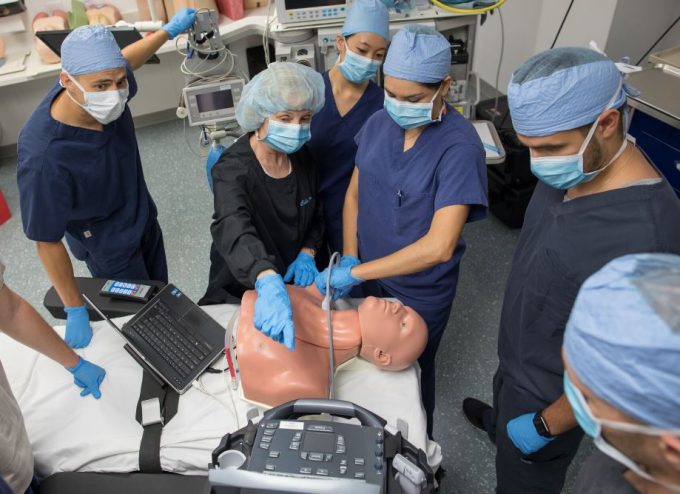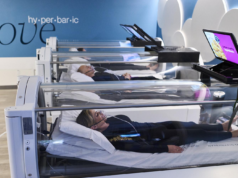Candidates considering nursing school are often told about the demand for qualified nurses and the ways they will be able to give back to their communities while earning a respectable wage in a skilled profession, but not many resources concentrate on the adventure a nursing career can bring. The fact is, nursing is one of those careers that was originally considered to be for adventurous women, those who would not settle down or were not ready, and it was often considered dangerous. Early examples of nurses who made a big difference like Florence Nightingale include stories of their risks, whether they were in battlefield situations or sick wards where they risked contracting deadly diseases, as was the case for many nurses during the 1918 influenza epidemic.
Of course, the adventure doesn’t always mean risk. Sometimes it means going to the places where you can make the biggest difference and providing a safe harbor from the dangers that have created such a large demand for medical care. At other times, it means getting the opportunity to put your nursing license to use in unconventional ways to perform in roles you might not have considered when you first started school. Click here to learn more about what your future could look like if you followed the path of a nursing career!
Operate Beyond Borders

There are a couple of ways to go in the industry where you’ll have a chance to travel and work in new environments. In the first case, travel nurses are people who specialize in filling shortages. Typically, their compensation packages include expenses for the flight and stipends to cover some or all the lodging expenses they will encounter while they are on location. They travel to wherever they are needed, filling roles during shortages for any number of reasons. Short-term travel nurses are used to covering for vacations, to provide extra relief during disasters and disease epidemics, and also just to provide relief for short-staffed areas until they can recruit permanent help. The best part is, with the right representation you could even wind up working outside the country.
The other way to see more of the world as a nurse is to sign up with a relief organization like Medecins Sans Frontieres. They deploy doctors, nurses, and other medical professionals to the global locations they are most needed in, providing the staff to run hospitals and care for the high medical demand in areas that are troubled by war, famine, and structural challenges like poverty. If you want to be able to make a visible difference and see the world, you’ll find a lot of opportunities through this kind of employer. Of course, that career choice does come with some costs. Traveling for short-term gigs is not the easiest career to have if you’re looking to settle down and spend time with family. Luckily, there are also career choices that provide adventure in other ways.
Build Long-Term Relationships With Patients

If you’re looking for an unconventional career where you won’t have the traditional hospital shift structure, consider what providing long-term care in various settings could bring to your career and life. There are a variety of options for these kinds of positions, all suited to different temperaments and goals. Providing long-term care not only gives you a stable shift structure and a single work location you can easily locate your home near, but it also gives you the opportunity to connect with patients and really get to know them, to provide support for them throughout a phase of their life marked with high medical needs.
Home Care Nurses give patients the maintenance care and treatments they need to keep their quality of life up, and they can help those with illnesses like cancer as well as disabled people at all phases of life who need regular medical assistance to remain independent.
Assisted Living and Residential Nurses are the backbones of communities that care for elderly and disabled individuals, and there are opportunities ranging from end of life care to long-term nursing facilities, recovery nursing, and even residential nursing for permanently disabled adults in support facilities.
Full-Time Private Nursing is nice to work if you can get it and you are capable of providing dedicated, full-time care to a single client or family. It’s not common, but opportunities do arise for those seeking them.
These unconventional approaches redefine adventure by putting you close up as a part of somebody else’s life, so you need more than just good medical skills to make them work. You need dedicated people skills that go deeper than just bedside manner because you need to be able to cultivate a deep trust over the course of weeks, months, or even years with a small group of people who will get to know you as well as you get to know them. That kind of work isn’t for everybody, but it is a fulfilling role for those who match with it well, and one that isn’t discussed enough as an option for nurses.
Open Doors in Research and Education

Don’t forget your nursing license also gives you the opportunity to assist with research and to teach, so you can find jobs outside the direct practice of your caregiving skills if you are looking to mentor other practitioners or even assist in a research setting. Licensed nurses are needed for everything from administering protocols during human tests and collating data to assessing and advising insurance companies and other organizations about health-related policy. The opportunities are as varied as your imagination, and they don’t involve using the career as a stepping stone to anything, they’re opportunities that are just for nurses, and that will always require skilled nurses to be carried out correctly.
There are a lot more ways to make your mark, learn more here on how to update your credentials with an MSN nurse educator program, until you can open practice of your own and cater to the communities you have always wanted to serve.
There’s no reason to limit your job search or your professional goals to traditional hospital nursing settings or doctors’ offices. Today’s medical community needs a wider range of professionals, and it provides a wide range of opportunity to reflect that.









